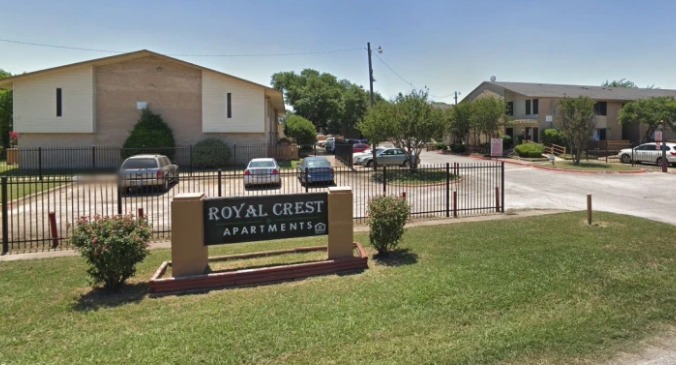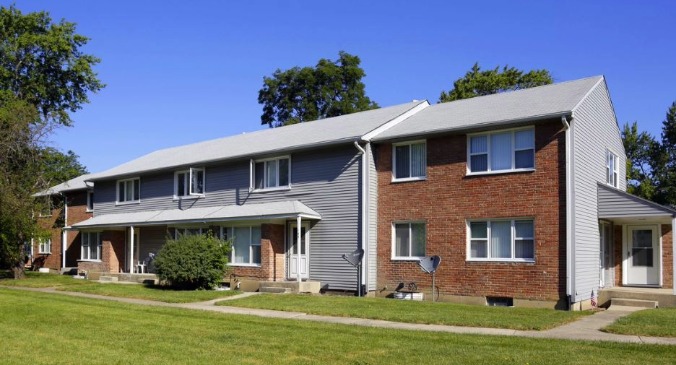U.S. Housing and Urban Development (HUD) Secretary Ben Carson today announced a historic agreement with the nation’s largest public housing authority to correct dangerous lead-based paint and other health and safety hazards. HUD, the Justice Department, and the U.S. Environmental Protection Agency (EPA) reached a Consent Decree with New York City and the New York City Housing Authority (NYCHA) to resolve widespread issues of lead, mold, pest infestations and other inadequate housing conditions. Read the Federal Complaint and the Consent Decree filed today in federal District Court for the Southern District of New York.
Under the terms of the agreement, New York City will invest at least $1.2 billion to abate lead-based paint hazards in tens of thousands of public housing units and will correct a number of longstanding housing deficiencies including inadequate heating, failing elevators and a significant backlog of work orders. In addition, a court-appointed Monitor will oversee the City’s corrective action plan and will ensure compliance with the Consent Decree.
More than 400,000 residents live in NYCHA properties, exceeding the number of residents living in the next ten largest public housing authorities combined. In addition to the agreement announced today, New York State placed NYCHA under a state of emergency order in April and is committing up to $550 million to assist the public housing authority in resolving health and safety issues.
“This historic agreement marks a new era for New York City’s public housing, one that puts families and their children first,” said HUD Secretary Carson. “New York City and New York State are making an unprecedented commitment to put NYCHA on a new path. The cooperation of Federal, State and city officials will vastly improve the living conditions for hundreds of thousands of New Yorkers who call NYCHA home.”
U.S. Attorney Geoffrey S. Berman stated: “NYCHA’s failure to provide decent, safe, and sanitary housing is simply unacceptable, and illegal. Children must be protected from toxic lead paint, apartments must be free of mold and pest infestations, and developments must provide adequate heat in winter and elevator service. NYCHA has put its residents at risk. Today’s unprecedented settlement will improve life for the 400,000 residents who call NYCHA home, while ensuring accountability, reform, and oversight at this troubled institution.”
HUD’s Principal Deputy Inspector General Helen M. Albert said: “We are proud of the integral work that the OIG staff performed which led to today’s settlement. This represents a consequential partnership with the U.S. Attorney and others to ensure that those who reside in NYCHA housing will do so in safe and sanitary conditions.”
EPA Administrator Scott Pruitt said: “Instead of protecting children from lead poisoning, NYCHA systematically violated EPA and HUD lead paint safety regulations and covered up its noncompliance. Today’s landmark settlement puts a stop to that. It is not only a great example of what EPA and HUD can achieve by working together, but it also sends a strong message to housing authorities, landlords, and renovators – violating the law and endangering public health will not be tolerated. This agreement will dramatically improve the living conditions of New York City’s most vulnerable residents.”
In addition to annual public housing capital funding from HUD, New York City will provide the following financial investment to support NYCHA under this agreement:
- $1 billion in capital funding over the first four years of the agreement;
- $200 million in capital funding each year after the initial four-year period;
- Additional operating and capital funds through 2027; and
- The City will continue its current practice of not seeking payments from NYCHA for ‘payments in lieu of taxes’ and police services.
Working with the court-appointed Monitor, NYCHA will also institute a number of institutional changes at the agency. These changes include the creation of a new Compliance Department to ensure NYCHA meets all federal, state and local regulatory requirements and ensures the integrity of physical inspections. NYCHA will also create a new Environmental Health and Safety Department to address lead-based paint hazards, mold, heating, pests, elevators, air quality and other physical conditions that affect residents’ health or safety. In addition, NYCHA will create a Quality Assurance Unit to verify the completion and quality of maintenance work.
The Consent Decree resolves the Federal government’s civil complaint against NYCHA. As a result of the agreement, HUD will lift it’s ‘zero threshold’ for NYCHA and allow the agency to resume spending its existing public housing capital funding without seeking prior HUD approval. This year alone, HUD is providing NYCHA nearly $1.5 billion to further assist the agency to meet its capital needs and to operate its programs.













